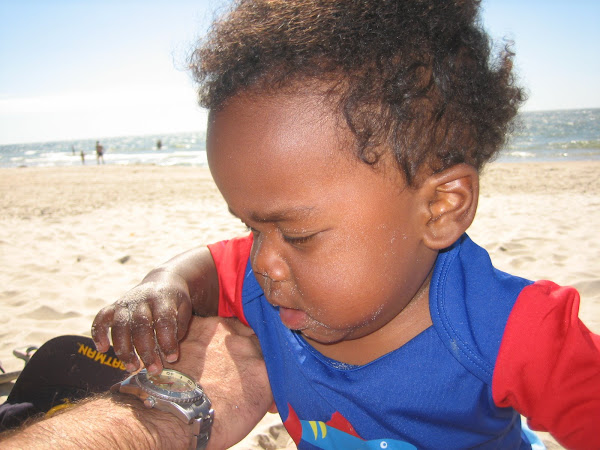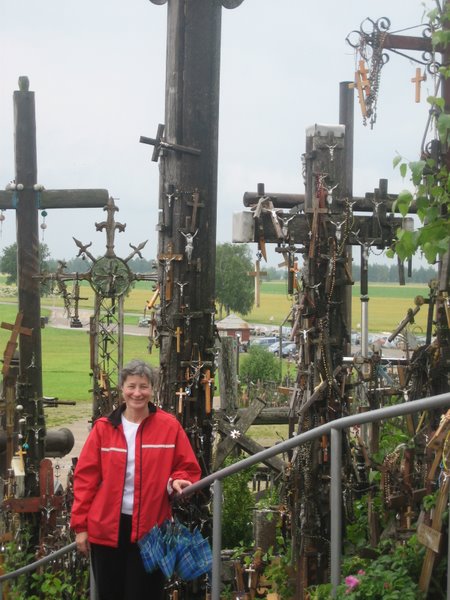LCC, soon to be called LCC-International University, has what seems a pretty strong orientation to social issues and the pursuit of peace and justice. In fact, Sandy's and my office (we share with a very nice fellow from Canada) is the Conflict Studies office. That means that the regular faculty member who occupies this office is the Conflict Studies director.
Conflict Studies, Peace Studies, and so on, tend to be unnerving for a lot of faculty (myself included, when I was on faculty) from traditional academic disciplines because the various "Studies" emphases are not very academic or very disciplined. That sounds nasty, I know, but I'll explain.
First, the very idea that you have two different "Studies" with contradictory names that study the same thing is vexing. Political Science and Unpolitical Science?
Second, by their nature, the "Studies" programs are highly normative, and often less attentive to both empirical reality and theoretical analysis than is good for them. Empirically, it seems to me, many such peace approaches neglect the fact that peace/cooperation/harmony is a condition to which not all people or nations are always willing to submit. One need only look at terrorists, and practically every nation except Switzerland and Costa Rica to see this.
Theoretically speaking, it should be clear that if the peacefully achieved outcome is accounted as a lower value than what one might accomplish with hostile or aggressive conduct (even war), even after paying the costs of that aggression, then plenty of people and nations will maximize their preferences by aggression.
Further, if only one party in a two or multi-party interaction is willing to use violence or aggression, they may do so. And, somehow, a lot of people and most nations, when goaded by an aggressor, respond in kind. In other words, both or all must commit to maintaining the way of peace, but it only takes one to break from that peace to make war a significant likelihood.
I think about Gandhi and Martin Luther King--they are held up as the best examples of non-violent resistance. But I wonder if their non-violence CAUSED the outcome they desired. (Their non-violence may have been morally, emotionally, spiritually more satisfying and rewarding, but that's a different issue.) Did the passive resistance cause their oppressors to stop, reconsider, and change their behavior? Or at that particular time and place did the oppressor lose the stomach for oppressing?
What would have happened, for instance, if the E. German police had opened fire (as many in the Politburo certainly wanted) on the hundreds of thousands of protestors in Leipzig, then E. Berlin in the fall of 1989, as they had in similar circumstances before? Didn't that conflict stay peaceful because the only actor who had any real capacity for violence refrained from using it? What would have happened if they had killed a few hundred protestors? Would the protestors have stormed a few government ministries, overturned some police cars, even beaten or killed some police officers (in short, gotten violent), the world community react with anger and horror (since so much "revolution" had already transpired peacefully in their area), thereby causing the communist government to step down? In other words, the same outcome, but with violence?
Non-violent this time, because the one who might have been willing to use violence refrained. Violent at other times because they didn't. So "Peacemaking" and "Positive Approaches to Peacebuilding" and "Getting Together" (the titles of some books on the shelf here) is difficult because it takes a mutual commitment on all sides. Short of that, as the Norwegian foreign minister acknowledged at a PLU lecture, you won't get peace.
I see one book called "Interpersonal Conflict," and this reminds me of the mediation training Sandy took. The American courts are apparently using mediators when they can, so that they can get rid of some their caseload. "When they can" is partly based on the attitude of the disagreeing parties. If they show willingness to reach negotiated compromise, they can mediate. If they seem stridently unwilling, they go to court (war?). The costs and the risks are both higher in court (as in war), yet a lot of people are still willing to take those risks and bear those costs.
I like that we have courts in domestic politics, so that we don't do actual interpersonal violence, but, international relations are not interpersonal relations, and the mediation option is much less available, durable, and enforceable in international relations.
So, while I like peace, the interpersonal way to harmony is not likely to be effective in the international arena, and the "Studies" need to take more account of that.
Oh, my favorite book on the shelf..."Lithuania: The Rebel Nation." All non-violent rebellion, I'm sure.
Tuesday, July 10, 2007
Subscribe to:
Post Comments (Atom)





No comments:
Post a Comment